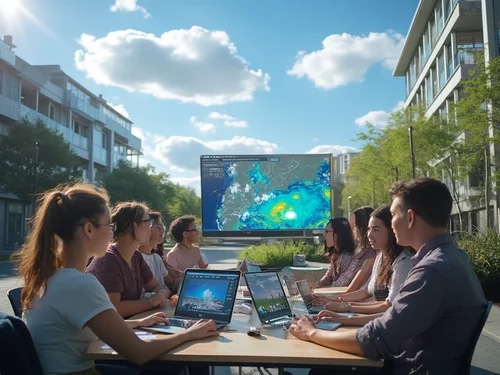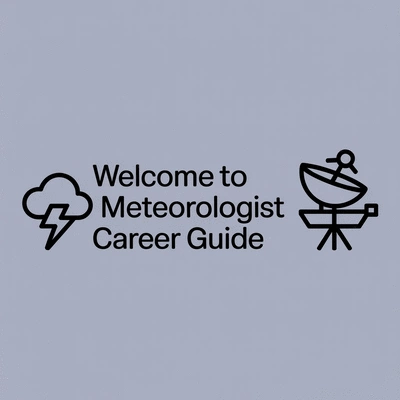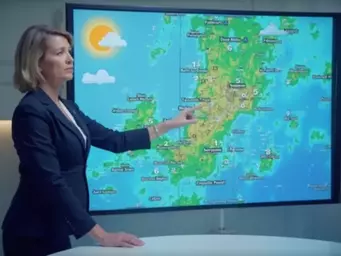With climate change intensifying and weather events becoming increasingly unpredictable, the demand for meteorologists is rising. Are you ready to embark on a journey that not only fascinates but also empowers you to make a difference?
What You Will Learn
- Meteorology is essential for disaster management and climate preparedness in Australia.
- A strong foundation in atmospheric science concepts, such as weather systems and data analysis, is crucial for aspiring meteorologists.
- Postgraduate degrees in meteorology enhance career opportunities in diverse fields like climate research and environmental consultancy.
- Specialized skills in data analysis, research methodologies, and communication are developed through advanced studies in meteorology.
- Engagement with professional associations provides valuable networking and continuing education opportunities for career growth.
- Understanding the impact of climate change is vital for shaping future meteorological practices and job opportunities.
Meteorology Career Pathways: Postgraduate Impact and Employment Trends
This visual summarizes the key areas where postgraduate meteorology studies contribute to career advancement, specialized skills, and projected job growth in Australia.
Career Advancement Opportunities
- Weather Forecasting
- Climate Research
- Environmental Consultancy
- Education and Outreach
Specialized Skills Developed
- Advanced Data Analysis
- Research Methodologies
- Communication Skills
Employment Trends & Demand
- Job growth projected to increase over the next decade
- Climate change driving higher demand for skilled meteorologists
Diverse Career Paths
- Operational Meteorology
- Climatology
- Severe Weather Research
- Environmental Policy
Postgraduate Meteorology Paths in Australia: A Comprehensive Overview
As a passionate meteorologist and educator, I understand how crucial it is to choose the right path in your journey toward a successful career in meteorology. Australia offers a wealth of opportunities for postgraduate study in this fascinating field, allowing students and career changers alike to dive deeper into weather science and atmospheric phenomena. Let's explore the various postgraduate options available and why pursuing a degree in meteorology can shape your future!
Understanding Meteorology and Atmospheric Science
The Role of Meteorology in Today’s World
Meteorology plays an essential role in our daily lives, influencing everything from agricultural practices to disaster management. By understanding weather patterns, meteorologists can provide vital information that helps communities prepare for extreme weather events. In Australia, where climate variability can be significant, the importance of skilled meteorologists cannot be overstated!
Engaging with the public about weather events fosters a sense of preparedness and resilience. As we face challenges such as climate change, the role of meteorologists will only grow more critical. They are the ones who guide us through the storms, both literally and figuratively!
Key Concepts in Atmospheric Science
To build a solid foundation in meteorology, it's essential to grasp key concepts in atmospheric science. Here's a brief overview of some fundamental topics:
- **Weather vs. Climate**: Understanding the difference between short-term weather patterns and long-term climate trends.
- **Atmospheric Layers**: Studying the structure of the atmosphere, including the troposphere, stratosphere, and more.
- **Weather Systems**: Learning about high and low pressure systems, fronts, and how they affect local weather.
- **Data Analysis**: Utilizing meteorological data to create forecasts and understand historical weather trends.
These concepts serve as the backbone of meteorological study, guiding both research and practical applications in the field. As you embark on your educational journey, having a firm grasp of these ideas will greatly enhance your understanding and appreciation of the subject!
Introduction to Climate Change and Its Relevance in Meteorology
Climate change is arguably one of the most pressing issues of our time, and its impact on meteorology is profound. As temperatures rise and weather patterns become more unpredictable, meteorologists are tasked with studying these changes and their implications. Understanding climate science is not just an academic exercise; it’s about preparing for a future that may look very different from today.
Incorporating climate change into meteorological studies helps equip future meteorologists with the skills needed to address emerging challenges. Whether you're drawn to research, policy-making, or public education, the intersection of climate change and meteorology is where you can make a significant impact!
Why Choose a Postgraduate Degree in Meteorology?
Career Advancement Opportunities in Meteorology
Choosing to pursue a postgraduate degree in meteorology can open up numerous career advancement opportunities. This advanced education not only enhances your knowledge but also makes you a more competitive candidate in the job market. With a postgraduate qualification, you can access roles in:
- **Weather Forecasting**
- **Climate Research**
- **Environmental Consultancy**
- **Education and Outreach**
These opportunities can lead to fulfilling careers where you can actively contribute to our understanding of the weather and its effects on society. I’ve seen firsthand how a higher degree can transform a passion for meteorology into a rewarding career!
Specialized Skills Developed Through Advanced Study
A postgraduate degree allows you to develop specialized skills that are invaluable in the meteorological field. Here are some key skills you can expect to enhance:
- **Advanced Data Analysis**: Gaining proficiency in interpreting complex meteorological data and using it for accurate forecasting.
- **Research Methodologies**: Learning how to conduct significant research that contributes to the field.
- **Communication Skills**: Mastering the art of communicating complex meteorological information to various audiences.
These skills not only prepare you for a successful career in meteorology but also enable you to make meaningful contributions to our understanding of the atmosphere. Are you ready to take the leap and gain these essential skills?
Exploring Career Pathways in Environmental Science and Meteorology
Postgraduate programs in meteorology often intersect with environmental science, creating a diverse range of career pathways. Graduates can explore various roles such as:
- **Environmental Policy Advisor**: Influencing policy decisions based on weather patterns and climate data.
- **Meteorological Technician**: Supporting data collection and analysis in weather stations.
- **Climate Scientist**: Pioneering research into the impacts of climate change on ecosystems.
Each pathway offers unique challenges and rewards, allowing you to find your niche in the expansive world of meteorology. Reflecting on your interests can help determine which direction aligns best with your career aspirations!
Quick Summary
Here's a brief recap of the key points discussed so far:
- The role of meteorology is crucial in daily life, impacting sectors like agriculture and disaster management.
- Understanding key concepts in atmospheric science is essential for aspiring meteorologists.
- Pursuing a postgraduate degree opens doors to diverse career pathways and specialized skills in meteorology.
Frequently Asked Questions About Meteorology Careers
What are the primary career opportunities after a postgraduate degree in meteorology?
A postgraduate degree in meteorology can lead to various advanced career opportunities such as weather forecasting, climate research, environmental consultancy, and roles in education and outreach. These roles often involve specialized skills and contribute significantly to understanding and managing weather phenomena.
How important is climate change understanding for meteorologists today?
Understanding climate change is critically important for meteorologists. As global temperatures rise and weather patterns become unpredictable, meteorologists are tasked with studying these changes and their impacts. This knowledge is essential for forecasting, policy-making, and developing strategies to mitigate the effects of climate change.
What specialized skills are developed through advanced meteorological studies?
Advanced meteorological studies help develop specialized skills such as advanced data analysis (interpreting complex meteorological data for accurate forecasting), research methodologies (conducting significant research), and communication skills (explaining complex meteorological information to diverse audiences).
How do professional associations contribute to a meteorologist's career growth?
Professional associations, such as the Australian Meteorological and Oceanographic Society (AMOS), provide valuable networking opportunities, access to exclusive job boards, mentorship programs, and continuing education resources. These connections can significantly enhance career prospects and professional development.
What are the employment trends for meteorologists in Australia?
The demand for skilled meteorologists in Australia is projected to grow over the next decade, driven by factors such as climate change and an increase in extreme weather events. This creates an opportune time to enter the profession, with roles available in government agencies like the Bureau of Meteorology, environmental consulting firms, and research institutions.
Preparing for a Successful Career in Meteorology
Career Outcomes: What to Expect After Graduation
As you embark on your journey toward becoming a meteorologist, it’s essential to understand the career outcomes that await you post-graduation. Meteorology is a field rich with diverse opportunities, and many graduates find themselves working in various settings that impact society every day!
Upon completing your studies, you might consider exploring positions in sectors such as:
- Government agencies, including the Australian Bureau of Meteorology
- Environmental consulting firms
- Research institutions and universities
- News and media organizations for weather reporting
- Private meteorological companies offering forecasting services
Each of these career paths has its unique demands and rewards. The ability to interpret data and communicate findings effectively is essential across all these roles.
Diverse Career Paths in Meteorology and Atmospheric Science
The landscape of meteorology and atmospheric science offers numerous avenues for specialization. For instance, you might find yourself drawn to:
- **Operational Meteorology:** Where you'll focus on real-time forecasting for various industries.
- **Climatology:** Examining long-term climate trends to inform public policy and environmental planning.
- **Severe Weather Research:** Investigating extreme weather phenomena to improve forecasting accuracy.
- **Environmental Policy:** Working to develop strategies that mitigate climate change impacts.
These fields not only provide exciting professional challenges but also allow you to contribute meaningfully to society by enhancing our understanding of weather and climate.
Employment Trends and Market Demand for Meteorologists
As we look toward the future, the demand for skilled meteorologists continues to grow. Factors such as climate change and increasing extreme weather events create a higher need for professionals who can analyze and forecast environmental data. According to recent studies, job growth in this field is projected to increase over the next decade!
It’s an opportune time to enter this profession, and being well-prepared will position you favorably in the job market, especially with the advanced training provided by programs like the Graduate Diploma in Meteorology offered in Australia.
Understanding the Role of Climate Science in Job Opportunities
Climate science is at the forefront of many meteorological job roles today. Understanding how climate change affects weather patterns can open doors to various careers. You might find opportunities in:
- Climate modeling and data analysis
- Policy development for climate adaptation and mitigation
- Community education on climate resilience strategies
This knowledge will not only enhance your employability but also allow you to play a part in shaping solutions for our changing planet.
Long-Term Professional Development in Meteorology
Once you’ve graduated, your learning journey doesn’t end! Continuous professional development is crucial in the ever-evolving field of meteorology. Let's explore how you can stay ahead of the curve.
Continuing Education and Lifelong Learning Opportunities
To remain relevant in your career, consider engaging in continuing education. This can involve:
- Attending workshops and seminars
- Enrolling in online courses on emerging technologies and methodologies
- Participating in certifications relevant to your specialization
By investing in your ongoing education, you are not only enhancing your skills but also demonstrating commitment to your profession, which employers value highly!
Staying Updated with Advancements in Research and Technology
The field of meteorology is rapidly advancing, with new technologies changing how we gather and interpret data. Keeping up with these changes is vital!
Consider subscribing to academic journals, participating in relevant forums, and engaging with research communities. This will help you stay informed about the latest advancements and best practices.
Importance of Professional Associations and Networking in Career Growth
Joining professional associations can significantly enhance your career prospects. Organizations such as the Australian Meteorological and Oceanographic Society (AMOS) offer resources, networking events, and professional development opportunities.
- Participating in conferences to meet industry peers
- Accessing exclusive job boards and resources
- Receiving mentorship from experienced meteorologists
Building a strong network within the meteorology community can open doors to job opportunities and collaborations that you might not find otherwise!
Next Steps: Your Journey in Meteorology Begins Here
Assessing Your Fit for Postgraduate Studies
Now that you're equipped with insights about career outcomes and professional development, it’s time to evaluate if postgraduate studies in meteorology are right for you. Self-reflection is crucial!
Self-Reflection: Are You Ready for This Commitment?
Take a moment to consider your motivations and aspirations in this field. Ask yourself:
- What excites me about meteorology?
- Am I prepared for the rigorous study and research required?
- How do I envision my career in the next five to ten years?
Your answers will guide you in deciding whether to pursue further education and what areas to focus on.
Actionable Steps to Begin Your Application Process
If you’re ready to take the plunge, I recommend starting with these steps:
- Research the various postgraduate programs available, such as the Graduate Diploma in Meteorology.
- Prepare necessary documentation and credentials for your application.
- Reach out to potential mentors or alumni for guidance.
Taking these steps will help set a solid foundation for your future studies and career in meteorology!
Engaging with the Meteorology Community
Finally, immersing yourself in the meteorology community can greatly enhance your learning experience and career opportunities. Engagement is key!
Joining Professional Associations and Conferences
Participating in conferences and joining associations is an excellent way to meet professionals in your field. These interactions foster connections that could lead to mentorships or job opportunities.
Networking with Current Students and Faculty
Don’t underestimate the value of building relationships with your peers and professors. These connections can provide support, insights, and even collaboration opportunities as you navigate your studies and career.
Recap of Key Points
Here is a quick recap of the important points discussed in the article:
- Understanding the distinction between weather and climate is crucial for aspiring meteorologists.
- Advanced education in meteorology opens doors to varied career opportunities, including weather forecasting and climate research.
- Specialized skills such as advanced data analysis and effective communication are essential in the meteorological field.
- Engaging with the meteorology community through professional associations can enhance career growth and networking opportunities.
- Continuous professional development is vital to stay current with advancements in research and technology in meteorology.










